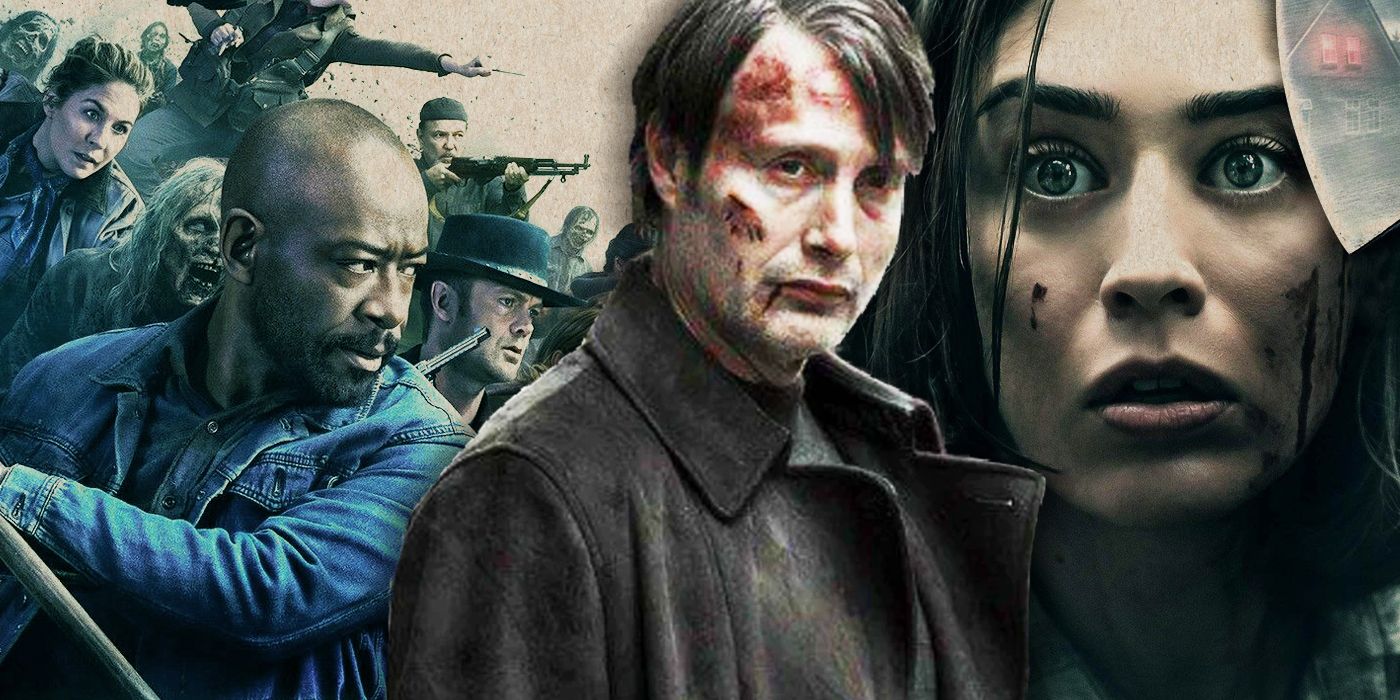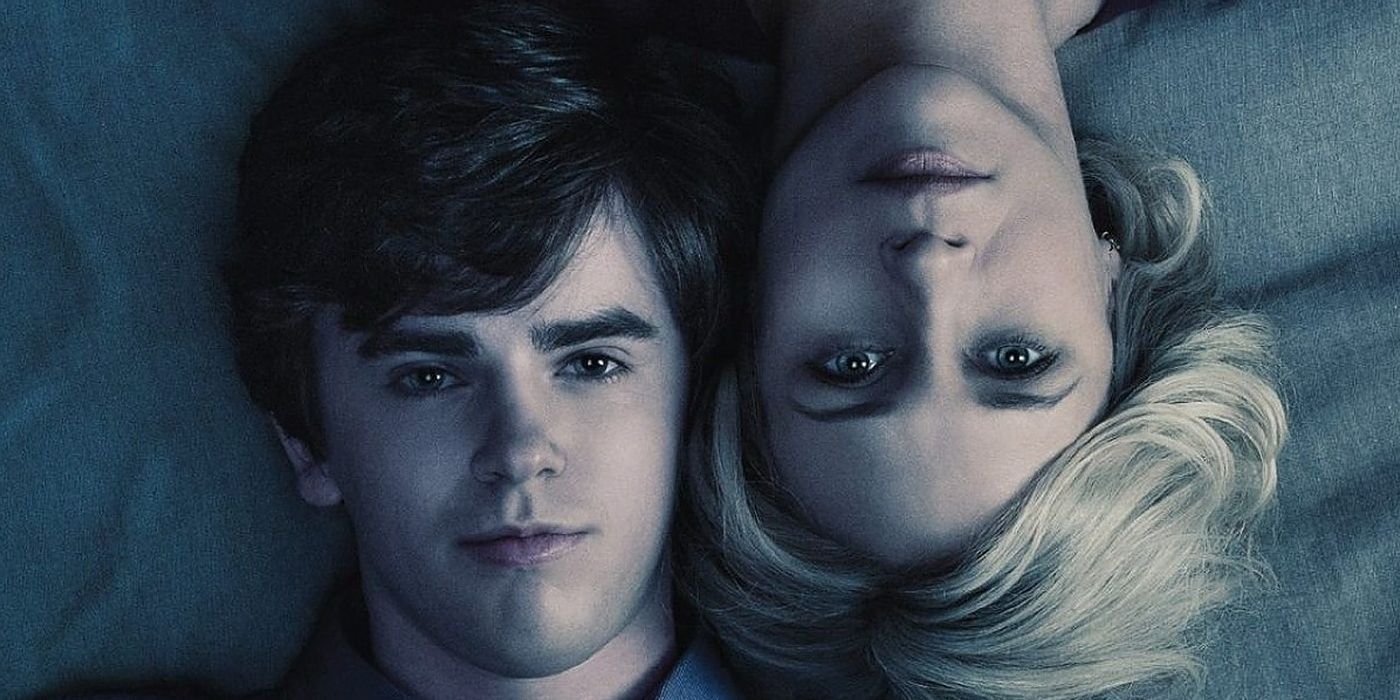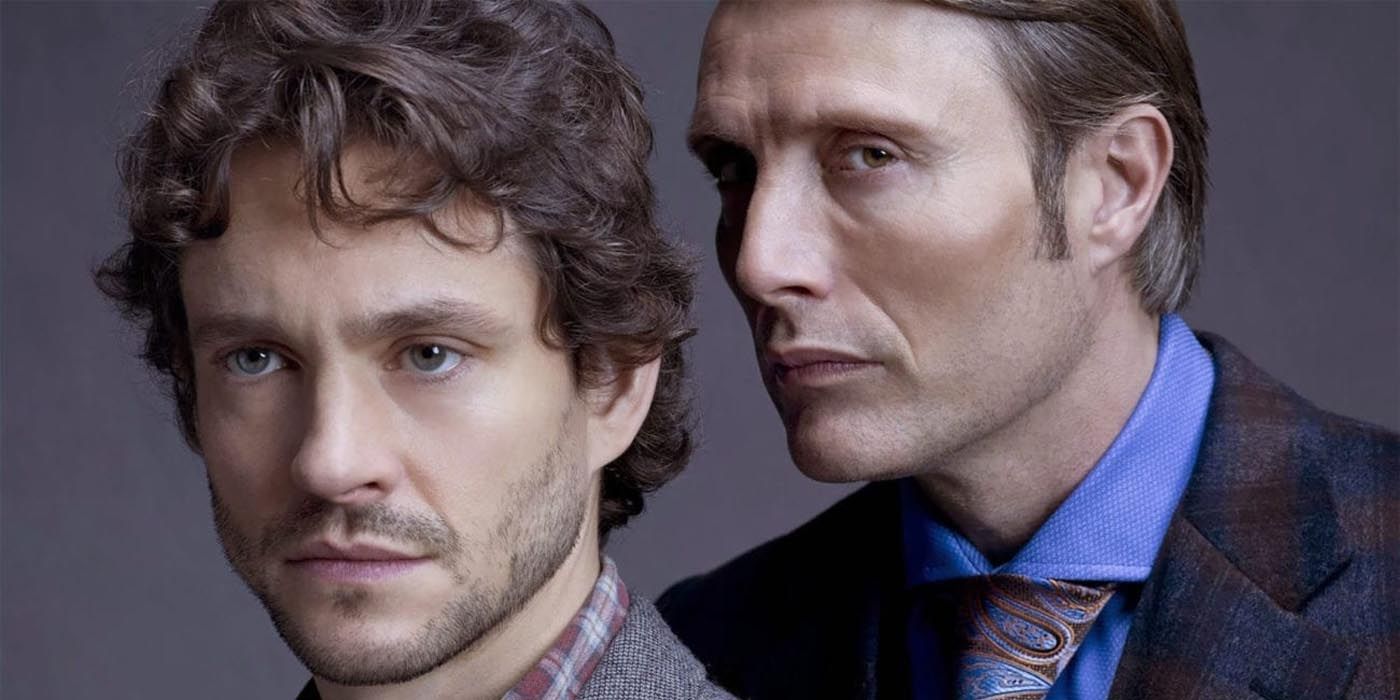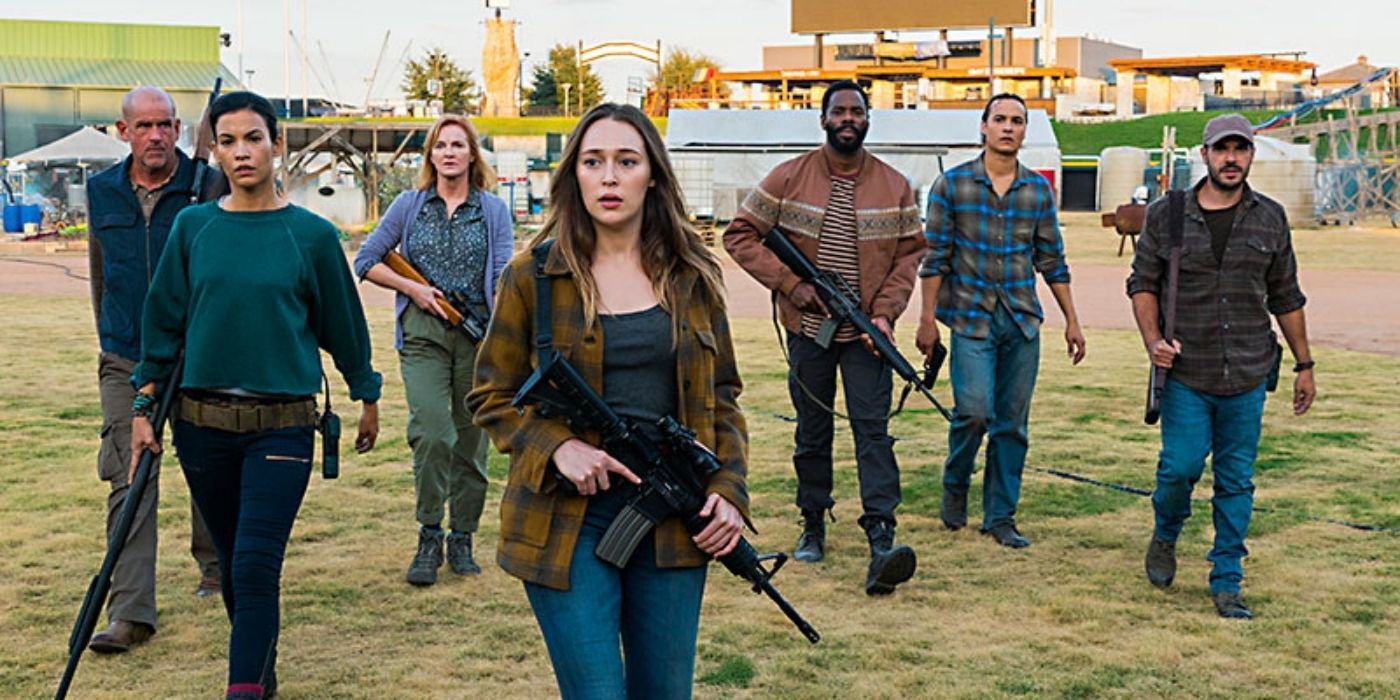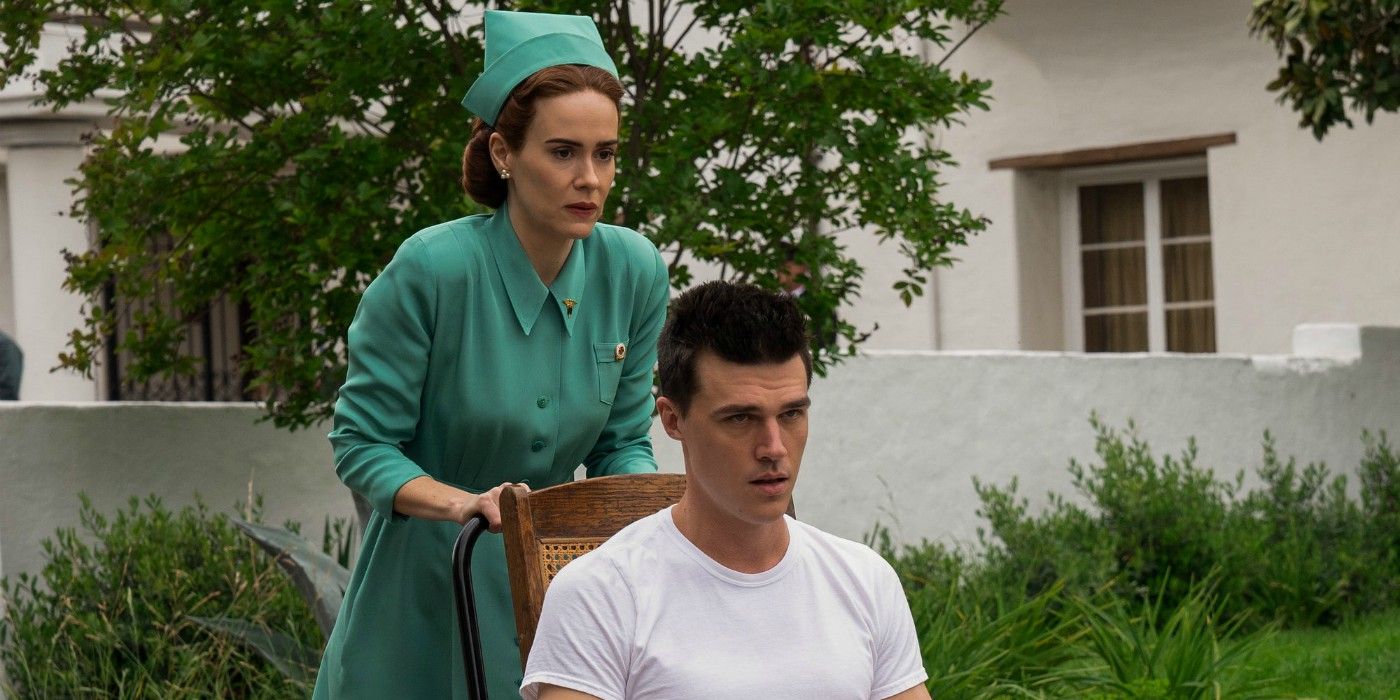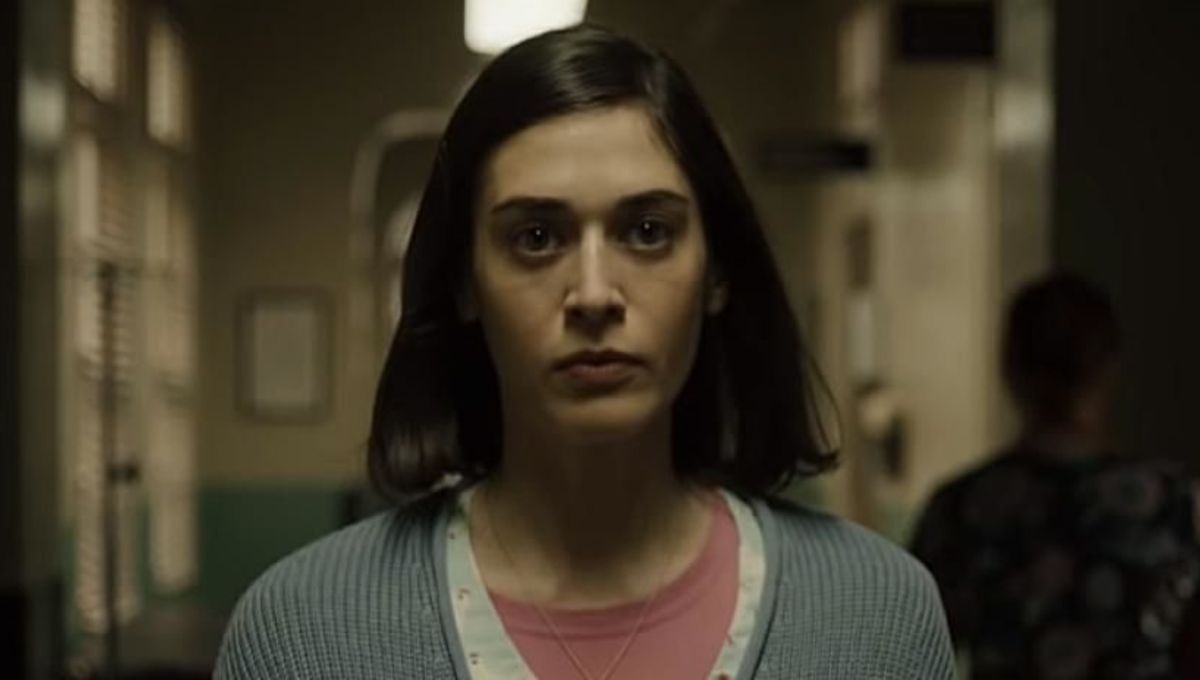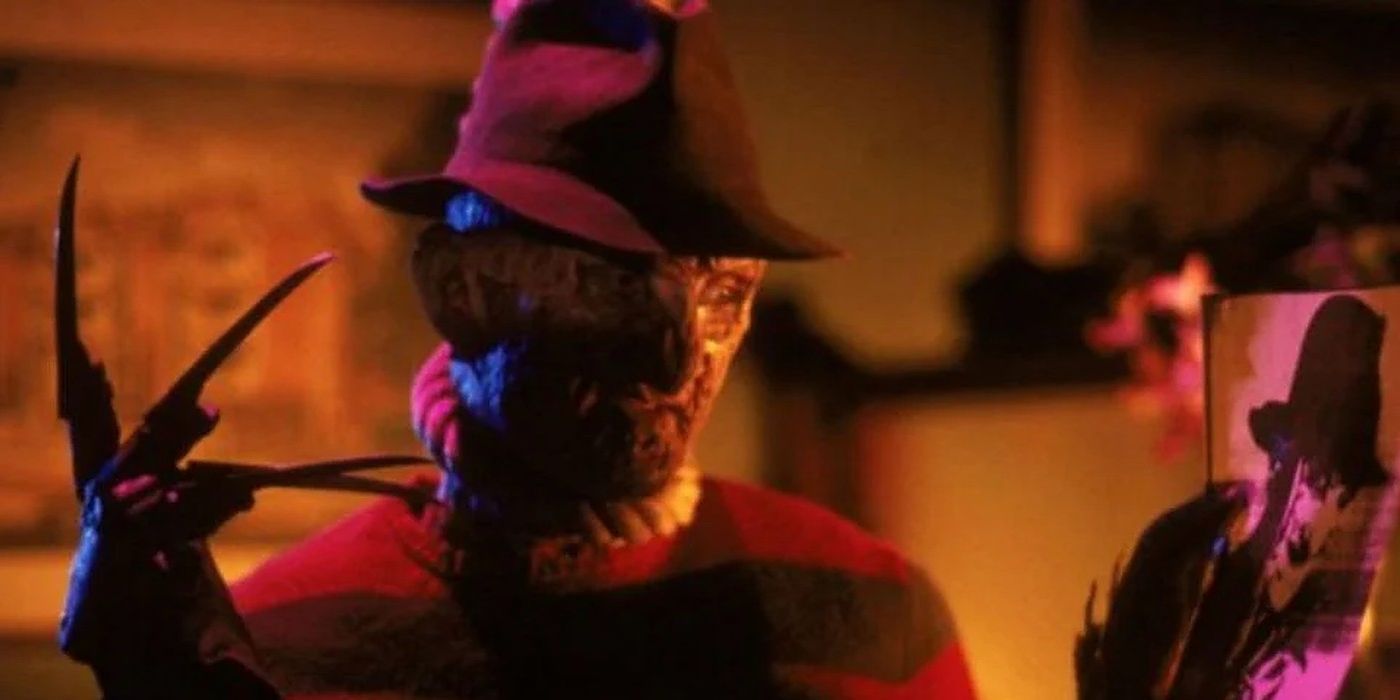When a horror movie with a memorable villain becomes a box office smash, it can lead to endless sequels. Eventually fans will want to go back and see the villain's origin in a prequel because it's the most interesting part of the character's story.
Today, television has become an avenue for horror franchises to expand their mythology and develop characters; something that most horror movie sequels don't have time for. With television prequel series becoming popular over the past decade, several horror legends have had their backstories expanded on the small screen.
Bates Motel
Although there was a made-for-TV Psycho prequel released in 1990, titled Psycho IV: The Beginning, starring original Norman Bates actor Anthony Perkins, A&E rebooted the franchise in 2013 with the contemporary prequel series Bates Motel. The future star of The Good Doctor, Freddie Highmore, had huge shoes to fill, but filled them well, striking the perfect balance of awkward, creepy and somewhat charming that made Norman Bates iconic to begin with.
The Conjuring star Vera Farmiga is great as Norma Bates, who provides that controlling and oedipal relationship with her son that eventually drives him insane. While fans of the original masterpiece would prefer it take place in 1960, Bates Motel still remains true to the spirit of Psycho with a modern twist.
Hannibal
Although Anthony Hopkins wasn't the first to play Hannibal Lecter on screen -- Brian Cox did in Michael Mann's Manhunter -- he popularized the character with his Oscar-winning performance in The Silence of the Lambs. Hopkins would reprise the role in two sequels, but when a Dr. Lecter origin story was attempted with a younger actor in Hannibal Rising, it was a critical and commercial flop that ended the cinematic franchise. Fans were skeptical that anyone could be a convincing Hannibal besides Hopkins, but in 2013 Mads Mikkelsen proved them wrong with a different but equally chilling portrayal in Bryan Fuller's dark NBC series Hannibal.
Hannibal's dark and complex relationship with the deeply tormented forensics expert Will Graham (Hugh Dancy) created some of the most compelling television scenes of the 2010s. The supporting cast was impressive as well, including Laurence Fishburne as Jack Crawford and Gillian Anderson as Bedelia Du Maurier. Despite being one of TV's best shows at the time, Hannibal's low ratings led to its cancellation after three seasons. However the series earned a revival of popularity with its release on Netflix last year.
Fear the Walking Dead
AMC's The Walking Dead has been one of the most successful TV franchises of the past decade. Because the post-apocalyptic world based on Robert Kirkman's comics is so vast, it's easy to inspire spin-offs in several mediums, including the popular Telltale Games adaptations. In 2015 a spin-off TV series was launched on AMC called Fear the Walking Dead, which takes place in Los Angeles during the beginning of the Walker apocalypse. The first three seasons take place prior to the events of the original show before eventually catching up with the main timeline. The new group of characters eventually interact with key characters from The Walking Dead.
Ratched
Although the legendary One Flew Over the Cuckoo's Nest is more of a comedy-drama than horror film, Ryan Murphy gave the franchise an injection of horror with Ratched. The Netflix series focuses on the titular nurse Ratched, who was played by Louise Fletcher in a chilling Oscar-winning performance in the original film. In this series, the character is portrayed by frequent Ryan Murphy collaborator Sarah Paulson.
Ratched has the patented visual and tonal styles of a Ryan Murphy period piece similar to seasons of American Horror Story and Feud; colorful costumes and sets in a series that addresses modern social issues. Fans of Cuckoo's Nest might not be getting the sequel they always wanted, but it's still a fascinating look at the downfall of one of cinema's most underrated and cold-blooded villains.
Castle Rock
Very few authors have a rich and detailed library like Stephen King, so it makes sense for his work to merge into one eerie fictional setting. In 2018, Hulu launched a series that incorporated several characters and settings from King's books, titled Castle Rock. While the first season of the show serves more as a sequel or spinoff to classic King tales like The Shining and The Shawshank Redemption, one of the second season's main storylines is a prequel to Misery. Lizzy Caplan takes on the role of young Annie Wilkes, a character immortalized by Kathy Bates' Oscar-winning performance in the 1990 movie, and shows a more sympathetic version of the psychotic admirer who is arguably a hero. Unfortunately, Castle Rock was canceled after its second season, but the complete series can still be watched today on Hulu.
Freddy's Nightmares
Wes Craven's A Nightmare on Elm Street is one of the most iconic slashers in horror history, but few may know about the short-lived television series Freddy's Nightmares. The TV show based on the movies was actually an anthology series in which Freddy Krueger introduced the story of each episode as a Rod Serling-type host. Rarely was he the actual antagonist of an episode, but when he was it explored the backstory of his wildly complicated character. In the pilot episode, "No More Mr. Nice Guy," Freddy himself explains what happened to him when he was a regular human after being prosecuted on child-murdering charges. While the series quietly faded into obscurity after its ending in 1990, the El Rey Network began to air re-runs in 2015.

